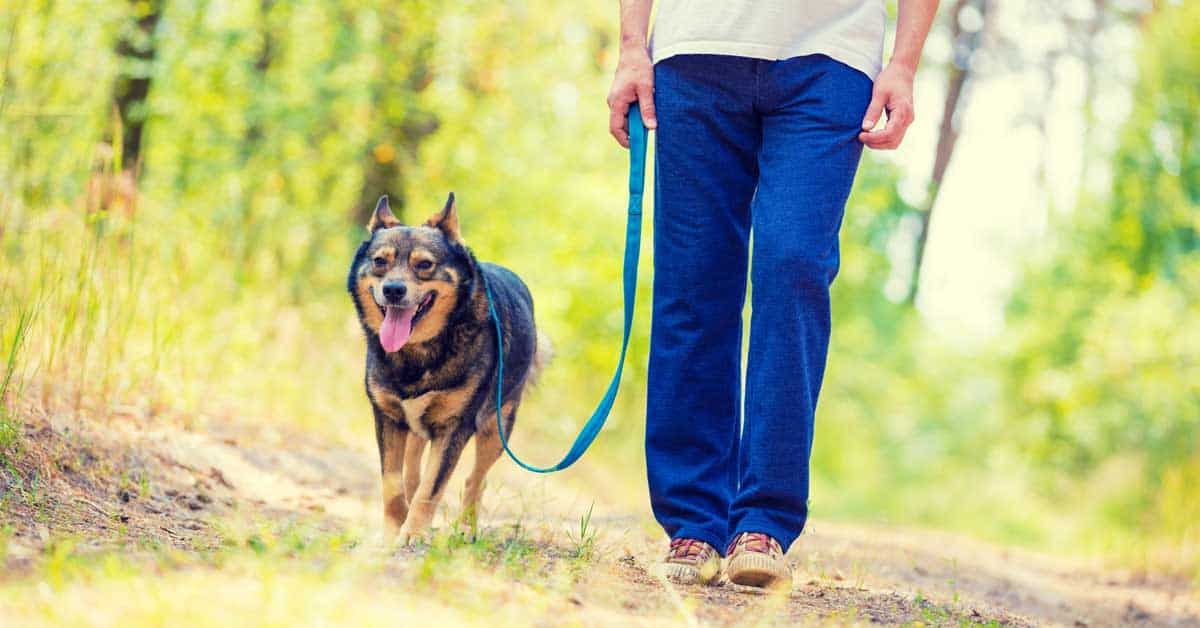If your dog pulls on the leash every time you go for a walk, you know how frustrating it can be. You want peaceful, enjoyable walks without constant tugging and pulling.
The good news? You can teach your dog to walk calmly by your side using a simple technique called the Stop and Go method. This method is easy to learn, works quickly, and strengthens the bond between you and your dog.
Keep reading to discover how you can transform your walks and enjoy every step together.

Credit: karenpryoracademy.com
Benefits Of Loose Leash Walking
Loose leash walkingmakes walks more fun for dogs and owners. It helps dogs feel calm and less stressed. Walking without pulling keeps dogs safe near roads and other animals. It also stops leash injuries to dogs and people. Dogs learn to focus better on their owners during walks. This builds trust and good behavior. Walking calmly means dogs get more exercise and explore without tension. Owners enjoy peaceful walks without constant pulling or stopping. Loose leash walking creates a strong bond between dog and owner. It makes training easier for other skills too. Simple and safe. Everyone wins.
Essentials For Stop And Go Training
Choosing the right equipmentmakes training easier and safer for your dog. Use a flat collaror a harnessthat fits well. Avoid choke chains or prong collars. These can hurt your dog and cause fear. A leashabout 4 to 6 feet long works best. It gives enough control without pulling too hard.
Setting a calm environmenthelps your dog focus. Find a quiet place with few distractions. This could be your backyard or a quiet park corner. Keep the area free from other dogs or loud noises. Calm surroundings let your dog pay attention to your voice and movements better.
Preparing Your Dog For Training
Start by helping your dog focus on you. Use treats or toys to get their attention. Hold the leash loosely at first to let your dog feel comfortable. Let them sniff and explore while staying close. Practice short sessions to build interest and calm behavior.
Teach basic leash rules like not pulling or jumping. Stop walking if the leash gets tight. Wait for your dog to relax and loosen the leash before moving again. This helps your dog learn patience and control.
Keep training fun and positive. Use a calm voice and gentle touches. Praise your dog often for good behavior. This builds trust and willingnessto follow your lead.

Credit: www.youtube.com
Step-by-step Stop And Go Method
Begin the walk with your dog on a loose leash. Keep the leash short but relaxed. Take slow, calm steps. Let your dog walk beside you comfortably.
If your dog pulls forward, stop immediately. Stand still and do not move. Wait quietly until the leash slackens. This shows your dog pulling has no reward.
Once the leash is loose again, start walking slowly. Keep your pace steady and calm. Repeat stopping and going as needed. This helps your dog learn to walk nicely.
Give your dog praise or a small treat when walking nicely. Positive feedback helps dogs understand good behavior. Be patient and consistent throughout the walk.
Handling Common Challenges
Distractionscan make loose leash walking tough. Keep your dog’s focus by using treats and a calm voice. Start training in quiet places. Slowly add more distractions as your dog improves.
Stubborn pullingneeds patience. Stop walking as soon as the leash tightens. Wait until the leash is slack before moving again. This teaches your dog that pulling stops the fun walk.
Consistencyis key. Practice every day, even for a few minutes. Use the same commands and methods each time. Consistent training helps your dog learn faster and keeps good behavior strong.
Tips For Success And Patience
Keep training sessions shortand fun. Dogs learn better with briefpractice times. Aim for 5 to 10 minuteseach session. This helps your dog stay focusedand happy.
Use treatsor praiseto reward good walking. Rewards make your dog want to repeatthe behavior. Give a treat right afteryour dog walks nicely on a loose leash. This helps your dog understandwhat you want.
| What to Track | Why It Helps |
|---|---|
| Length of loose leash walking | See how long your dog can stay calm |
| Number of stop and go cycles | Know how often your dog follows the commands |
| Type of rewards used | Find out which treats work best |
| Distraction levels | Check how well your dog stays focused |

Credit: www.youtube.com
Frequently Asked Questions
What Is Loose Leash Walking In Dog Training?
Loose leash walking means your dog walks calmly beside you. The leash stays slack, not tight. This helps control your dog and makes walks enjoyable.
How Does The Stop And Go Method Work?
The stop and go method teaches dogs to stop when pulling. You pause walking until the leash is slack. Then, continue walking to reinforce good behavior.
Why Use Stop And Go For Leash Training?
Stop and go is simple and effective. It teaches dogs patience and control. It reduces pulling by rewarding calm walking with forward movement.
How Long Does Loose Leash Training Take?
Training duration varies by dog and consistency. Some dogs learn in weeks, others take months. Regular, short sessions improve results faster.
Conclusion
Teaching loose leash walking using the stop and go method takes patience. Keep sessions short and positive. Praise your dog for walking calmly beside you. Stop moving when the leash tightens, then start again when it loosens. This helps your dog learn the right behavior.
Practice often, and stay consistent. Soon, walks will be more enjoyable for both of you. Simple steps, steady work, and kindness make a big difference.





